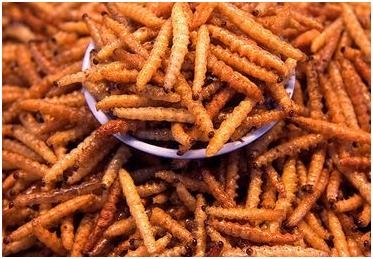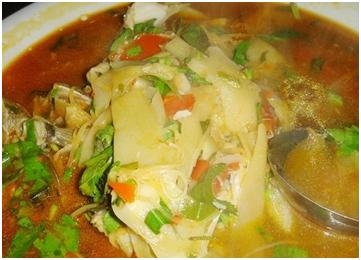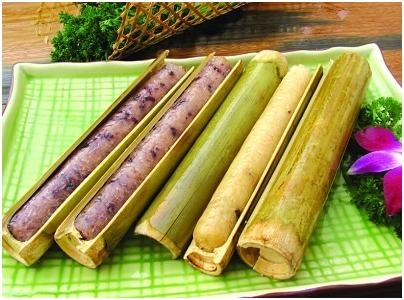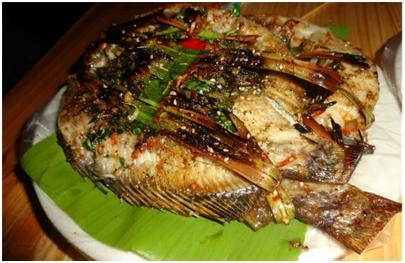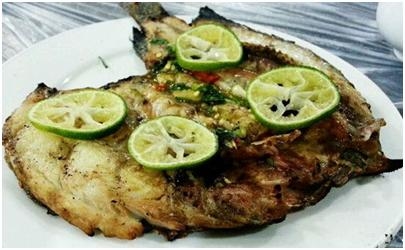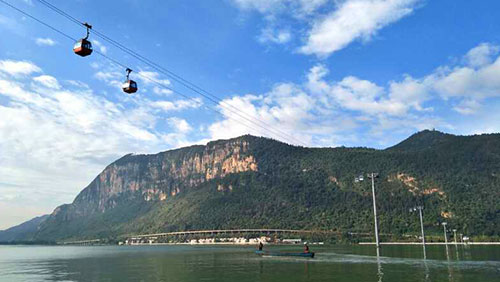CHC5028代做、C/C++程序設(shè)計(jì)代寫
時(shí)間:2023-11-03 來源: 作者: 我要糾錯(cuò)
CHC5028代做、C/C++程序設(shè)計(jì)代寫
CHC5028 Software Development with
C/C++
Coursework
Important Dates
Week 5 (30/10/2023-3/11/2023): Mandatory demonstration of Exercise 1, feedback with
preliminary marks.
Week 10 (4/12/2023-8/12/2023): Mandatory demonstration of Exercise 2, feedback with
preliminary marks.
Week 12 (18/12/2023-22/12/2023): Final demonstration and submission.
Background
“Text adventures”, now called “interactive fiction”, were among the first type of computer
game ever produced. These games have no graphics; the player reads the story of the
game in text, and decides what their character will do by typing commands at a prompt.
Although less popular now, text adventures are still played and created, and developed
into the original online RPGs (MUDs). You can play some sample modern text
adventures here:
A Change in the Weather, Spider and Web, Slouching Towards Bedlam, 北大俠客行
These are playable online via a web browser. It is advisable to try out the games to get
an understanding of how the games behave.
For this coursework, you will be creating a simple game engine for a text adventure.
You are not required to write an actual adventure, only the back-end program code that
would support one. You will need to add some material to the program in order to test it,
but this may just be simple test material. You may add interesting descriptions or stories
to your program if you want to, but there are no marks for doing so.
You are provided with a CLion project containing a very simple game harness which
supports only two commands: going north (north or n), and quitting (quit). Extend it
by doing the exercises below. Note that the later exercises are less explicitly described
than the earlier ones, meaning that you must solve more problems yourself. This is
intentional.
The coursework is written to be built using gcc through CMake and CLion. It is not
recommended that you attempt to build it using Visual Studio or XCode.
Important: If you are building the sample coursework on a platform other than
Windows, or on a machine which does not have the Windows API installed, you may
get an error in the file wordwrap.c. This file calls a Windows specific function to find the
width of the console. If you get this error, remove the #include <windows.h> from
the top of the file, and edit the initWordWrap() function by deleting its contents and
replacing them with consoleWidth = 80; currentConsoleOffset = 0;. You
can change 80 here to any number that makes the output comfortably readable.
Exercise 1 (10% of the mark)
In the current system you can only move North. Extend the engine to allow movement in
all four compass directions.
• Add properties to the Room class for storing east, south, and west exits. These
properties will need accessor methods. (3%)
• Add code to the gameLoop method to understand the commands east, south, and
west (and the abbreviations e, s and w) and to handle them in a similar way to
north. (3%)
• Modify initRooms to create more rooms using the new exits in order to test your
code. (2%)
• Find a more elegant way of implementing these exits which does not repeat code.
[Hint: Traversing through map structures/strings, etc. can be considered.] (2%)
Exercise 2 (50% of the mark)
A key part of most text adventure games is the ability to move objects around. Objects
can be found in rooms and can be picked up and put down by the player. Add this
capability to the game engine.
• Create a GameObject class. It should contain at least a short name, a long
description, and a keyword (for the player to use when typing commands). (5%)
• Modify the Room class so that each Room includes a list of GameObjects in the
room. (2%)
• Modify the State class to include a representation of a list of GameObjects the
player is carrying, called inventory. (2%)
• Modify the State class to include a representation of the player’s physical
strength, called strength, which is initiated as 100. (2%)
• Modify the gameLoop method to reduce strength by 1 per minute, when
strength goes to 0, the program shall be terminated. (5%)
• Create a derived class FoodObject of GameObject class, it should contain an
integer-type property named energy which should be limited in a range of 1-
10. (5%)
• Modify the Room::describe() method to also print out the short names of all the
objects in the room, formatted as nicely as possible. (2%)
• Modify the gameLoop method to pay attention to the second word of the command
the player enters, if there is one. (5%)
• Modify the gameLoop command to search through a) objects in the current room,
and b) objects in the inventory, for an object with a keyword matching the second
word of the command the player typed. (5%)
• Implement the player command get which, when typed with an object keyword, will
move that object from the current room list into the inventory. It should display
appropriate errors if the object is not in the room or the object is already in the
inventory or the object does not exist. (5%)
• Implement the player command drop which, when typed with an object keyword,
will move that object from the inventory into the current room list. It should display
appropriate errors if the object is not in the inventory or already in the room, or does
not exist, etc. (5%)
• Implement the player command inventory which will print out the short names of
all the objects in the inventory. (2%)
• Implement the player command examine which, when typed with an object
keyword, will print out the long description of that object. (2%)
• Implement the player command eat which, when typed with a food object
keyword, will print out the player’s strength after adding the energy of the
food object to the player’s strength, which should not exceed 100. (3%)
• Modify initRooms to create some GameObjects and FoodOjects and put them
in the rooms. Use this to test your program. (No marks are assigned specifically for
this task, but without it, the ones above cannot be demonstrated.)
Exercise 3 (40% of the mark)
Since most players will not want to play an entire game at one sitting, most games
include save and load (or restore) commands. Implement these commands. They
should ask the user for a filename and then write or read the current game state, to or
from that file.
Note that the layout and descriptions of rooms, and the list and descriptions of objects,
are not part of the game state because they do not change during the game. These
should not be included in the save file and saving them will lose marks.
A simple file open, load, and save does not guarantee full marks and may not
guarantee “a good mark”.
To this end, some important points to consider:
• The “game state” may also include the locations of objects the player has dropped in
rooms. Would it be a good idea to restructure how object locations are stored?
• The State object stores the current room, and objects, using pointers. Pointers
cannot safely be written to disk since addresses may be different when the program
is reloaded. How can you enable this data to be safely saved and reloaded?
• It is worth ensuring to some degree that the user cannot readily cheat, or spoil the
game, by reading or changing a save file. While it is not necessary to implement
actual authentication or encryption but at the same time, the file does not have to be
just a text dump. This actually makes it harder to parse when loaded. So, for
example, saving the required indexes into a static array of strings may be a better
way than saving the strings themselves.
Marking scheme for this section:
• 5% for basic correct structure of I/O.
• 5% for handling errors appropriately.
• 10% for the file format designed for storing the saved game.
• 10% for the code that performs the save.
• 10% for the code that performs the load.
Assessment Rules
Code will be assessed by a demonstration and viva in week 12. You will be asked to
demonstrate your code and to explain how it works. There is no hard division of marks
between code and viva.
If you cannot explain your code sufficiently well to satisfy the assessor that it is
your own work, they have the right to award 0 marks for that exercise, regardless
of the quality of the code.
The fact that your code works does not guarantee full marks. All code is expected
to also be readable, maintainable, and efficient. You are not required to exactly follow
the steps in the exercises above. Alternative designs are also acceptable if they can be
justified in the viva. However, designs which substantially reduce efficiency or other
desirable properties without corresponding benefit will lose marks.
In addition to final submission in Week 12, there will be two mandatory feedback
sessions as follows:
• Week 5(30/10/2023-3/11/2023):
Exercise 1 will need to be demonstrated.
• Week 10(4/12/2023-8/12/2023):
Exercise 2 will need to be demonstrated.
During these two weeks, you must demonstrate your coursework and you will be given
a preliminary mark, and detailed feedback.
• The deadline for submission of the coursework is Week 12.
• In Week 12 you will also be required to demonstrate the final version of
your work, and verbal feedback will be given.
Exercise 2 needs to be demonstrated in Week 10, and not in Week 5, although general
queries can be discussed.
Exercise 3 does not need to be not demonstrated in Weeks 5 or 10, although you may
demonstrate it for feedback if you wish. Its contribution to the mark is not subject to the
cap, although it will be difficult to score highly on Exercise 3 if you did not complete
Exercises 1 and 2.
Notice on presentation and submission.
You do not need to give a presentation nor submit a report for either section of the
coursework. This coursework’s focus is on the quality of your final code and on your
ability to understand it, not your software engineering process (which is not expected to
be standard when you are learning the language).
Standard rules on plagiarism apply to this coursework.
The Code should be your own work and must not be copied from the internet or
any other source. If you have difficulty with the coursework, you should approach your
practical tutor in the first instance. Posting questions about the coursework on Stack
Overflow, Quora, or similar sites may be treated as an incitement to plagiarism. Posting
parts of your answer to the coursework on the publicly available internet where other
students may access it will be treated asan incitement to plagiarism. Soliciting or
obtaining answers to the coursework in exchange for money and any other
consideration will be treated as serious academic misconduct. Asking for coursework
answers from any party outside of the University is itself attempted plagiarism and you
should not do it; if that third party commits any of theoffenses in this section on your
behalf, you may be held responsible, even if you were not directly aware they would do
so (because you should not have asked them in the first place).
Assignment Data
Contact person Leon Liang, leon@zy.cdut.edu.cn
Learning outcomes See below.
Formative deadlines Week 5 (30/10/2023-3/11/2023):
Exercise 1 (Demonstration)
Week 10 (4/12/2023-8/12/2023):
Exercise 2 (Demonstration)
Formative feedback Week 5 (30/10/2023-3/11/2023):
Exercise 1 (Spoken interactive)
Week 10 (4/12/2023-8/12/2023):
Exercise 2 (Spoken interactive)
Summative deadline Week 12 (18/12/2023-22/12/2023)
Demonstration and Submission
Summative feedback Week 12 (18/12/2023-22/12/2023)
Spoken interactive
Final marks after assessment committees
Assignment Weighting 50% of module
Learning Outcomes
• Understand the fundamental concepts of C and C++ programming for object
manipulation, data structuring and input/output control.
• Refine a problem specification into a collection of C++ classes.
• Create a software artifact specified in terms of C++ objects and their interrelations.
• Research the techniques for safe and efficient programming in C and C++.
請(qǐng)加QQ:99515681 或郵箱:99515681@qq.com WX:codehelp
CHC5028 Software Development with
C/C++
Coursework
Important Dates
Week 5 (30/10/2023-3/11/2023): Mandatory demonstration of Exercise 1, feedback with
preliminary marks.
Week 10 (4/12/2023-8/12/2023): Mandatory demonstration of Exercise 2, feedback with
preliminary marks.
Week 12 (18/12/2023-22/12/2023): Final demonstration and submission.
Background
“Text adventures”, now called “interactive fiction”, were among the first type of computer
game ever produced. These games have no graphics; the player reads the story of the
game in text, and decides what their character will do by typing commands at a prompt.
Although less popular now, text adventures are still played and created, and developed
into the original online RPGs (MUDs). You can play some sample modern text
adventures here:
A Change in the Weather, Spider and Web, Slouching Towards Bedlam, 北大俠客行
These are playable online via a web browser. It is advisable to try out the games to get
an understanding of how the games behave.
For this coursework, you will be creating a simple game engine for a text adventure.
You are not required to write an actual adventure, only the back-end program code that
would support one. You will need to add some material to the program in order to test it,
but this may just be simple test material. You may add interesting descriptions or stories
to your program if you want to, but there are no marks for doing so.
You are provided with a CLion project containing a very simple game harness which
supports only two commands: going north (north or n), and quitting (quit). Extend it
by doing the exercises below. Note that the later exercises are less explicitly described
than the earlier ones, meaning that you must solve more problems yourself. This is
intentional.
The coursework is written to be built using gcc through CMake and CLion. It is not
recommended that you attempt to build it using Visual Studio or XCode.
Important: If you are building the sample coursework on a platform other than
Windows, or on a machine which does not have the Windows API installed, you may
get an error in the file wordwrap.c. This file calls a Windows specific function to find the
width of the console. If you get this error, remove the #include <windows.h> from
the top of the file, and edit the initWordWrap() function by deleting its contents and
replacing them with consoleWidth = 80; currentConsoleOffset = 0;. You
can change 80 here to any number that makes the output comfortably readable.
Exercise 1 (10% of the mark)
In the current system you can only move North. Extend the engine to allow movement in
all four compass directions.
• Add properties to the Room class for storing east, south, and west exits. These
properties will need accessor methods. (3%)
• Add code to the gameLoop method to understand the commands east, south, and
west (and the abbreviations e, s and w) and to handle them in a similar way to
north. (3%)
• Modify initRooms to create more rooms using the new exits in order to test your
code. (2%)
• Find a more elegant way of implementing these exits which does not repeat code.
[Hint: Traversing through map structures/strings, etc. can be considered.] (2%)
Exercise 2 (50% of the mark)
A key part of most text adventure games is the ability to move objects around. Objects
can be found in rooms and can be picked up and put down by the player. Add this
capability to the game engine.
• Create a GameObject class. It should contain at least a short name, a long
description, and a keyword (for the player to use when typing commands). (5%)
• Modify the Room class so that each Room includes a list of GameObjects in the
room. (2%)
• Modify the State class to include a representation of a list of GameObjects the
player is carrying, called inventory. (2%)
• Modify the State class to include a representation of the player’s physical
strength, called strength, which is initiated as 100. (2%)
• Modify the gameLoop method to reduce strength by 1 per minute, when
strength goes to 0, the program shall be terminated. (5%)
• Create a derived class FoodObject of GameObject class, it should contain an
integer-type property named energy which should be limited in a range of 1-
10. (5%)
• Modify the Room::describe() method to also print out the short names of all the
objects in the room, formatted as nicely as possible. (2%)
• Modify the gameLoop method to pay attention to the second word of the command
the player enters, if there is one. (5%)
• Modify the gameLoop command to search through a) objects in the current room,
and b) objects in the inventory, for an object with a keyword matching the second
word of the command the player typed. (5%)
• Implement the player command get which, when typed with an object keyword, will
move that object from the current room list into the inventory. It should display
appropriate errors if the object is not in the room or the object is already in the
inventory or the object does not exist. (5%)
• Implement the player command drop which, when typed with an object keyword,
will move that object from the inventory into the current room list. It should display
appropriate errors if the object is not in the inventory or already in the room, or does
not exist, etc. (5%)
• Implement the player command inventory which will print out the short names of
all the objects in the inventory. (2%)
• Implement the player command examine which, when typed with an object
keyword, will print out the long description of that object. (2%)
• Implement the player command eat which, when typed with a food object
keyword, will print out the player’s strength after adding the energy of the
food object to the player’s strength, which should not exceed 100. (3%)
• Modify initRooms to create some GameObjects and FoodOjects and put them
in the rooms. Use this to test your program. (No marks are assigned specifically for
this task, but without it, the ones above cannot be demonstrated.)
Exercise 3 (40% of the mark)
Since most players will not want to play an entire game at one sitting, most games
include save and load (or restore) commands. Implement these commands. They
should ask the user for a filename and then write or read the current game state, to or
from that file.
Note that the layout and descriptions of rooms, and the list and descriptions of objects,
are not part of the game state because they do not change during the game. These
should not be included in the save file and saving them will lose marks.
A simple file open, load, and save does not guarantee full marks and may not
guarantee “a good mark”.
To this end, some important points to consider:
• The “game state” may also include the locations of objects the player has dropped in
rooms. Would it be a good idea to restructure how object locations are stored?
• The State object stores the current room, and objects, using pointers. Pointers
cannot safely be written to disk since addresses may be different when the program
is reloaded. How can you enable this data to be safely saved and reloaded?
• It is worth ensuring to some degree that the user cannot readily cheat, or spoil the
game, by reading or changing a save file. While it is not necessary to implement
actual authentication or encryption but at the same time, the file does not have to be
just a text dump. This actually makes it harder to parse when loaded. So, for
example, saving the required indexes into a static array of strings may be a better
way than saving the strings themselves.
Marking scheme for this section:
• 5% for basic correct structure of I/O.
• 5% for handling errors appropriately.
• 10% for the file format designed for storing the saved game.
• 10% for the code that performs the save.
• 10% for the code that performs the load.
Assessment Rules
Code will be assessed by a demonstration and viva in week 12. You will be asked to
demonstrate your code and to explain how it works. There is no hard division of marks
between code and viva.
If you cannot explain your code sufficiently well to satisfy the assessor that it is
your own work, they have the right to award 0 marks for that exercise, regardless
of the quality of the code.
The fact that your code works does not guarantee full marks. All code is expected
to also be readable, maintainable, and efficient. You are not required to exactly follow
the steps in the exercises above. Alternative designs are also acceptable if they can be
justified in the viva. However, designs which substantially reduce efficiency or other
desirable properties without corresponding benefit will lose marks.
In addition to final submission in Week 12, there will be two mandatory feedback
sessions as follows:
• Week 5(30/10/2023-3/11/2023):
Exercise 1 will need to be demonstrated.
• Week 10(4/12/2023-8/12/2023):
Exercise 2 will need to be demonstrated.
During these two weeks, you must demonstrate your coursework and you will be given
a preliminary mark, and detailed feedback.
• The deadline for submission of the coursework is Week 12.
• In Week 12 you will also be required to demonstrate the final version of
your work, and verbal feedback will be given.
Exercise 2 needs to be demonstrated in Week 10, and not in Week 5, although general
queries can be discussed.
Exercise 3 does not need to be not demonstrated in Weeks 5 or 10, although you may
demonstrate it for feedback if you wish. Its contribution to the mark is not subject to the
cap, although it will be difficult to score highly on Exercise 3 if you did not complete
Exercises 1 and 2.
Notice on presentation and submission.
You do not need to give a presentation nor submit a report for either section of the
coursework. This coursework’s focus is on the quality of your final code and on your
ability to understand it, not your software engineering process (which is not expected to
be standard when you are learning the language).
Standard rules on plagiarism apply to this coursework.
The Code should be your own work and must not be copied from the internet or
any other source. If you have difficulty with the coursework, you should approach your
practical tutor in the first instance. Posting questions about the coursework on Stack
Overflow, Quora, or similar sites may be treated as an incitement to plagiarism. Posting
parts of your answer to the coursework on the publicly available internet where other
students may access it will be treated asan incitement to plagiarism. Soliciting or
obtaining answers to the coursework in exchange for money and any other
consideration will be treated as serious academic misconduct. Asking for coursework
answers from any party outside of the University is itself attempted plagiarism and you
should not do it; if that third party commits any of theoffenses in this section on your
behalf, you may be held responsible, even if you were not directly aware they would do
so (because you should not have asked them in the first place).
Assignment Data
Contact person Leon Liang, leon@zy.cdut.edu.cn
Learning outcomes See below.
Formative deadlines Week 5 (30/10/2023-3/11/2023):
Exercise 1 (Demonstration)
Week 10 (4/12/2023-8/12/2023):
Exercise 2 (Demonstration)
Formative feedback Week 5 (30/10/2023-3/11/2023):
Exercise 1 (Spoken interactive)
Week 10 (4/12/2023-8/12/2023):
Exercise 2 (Spoken interactive)
Summative deadline Week 12 (18/12/2023-22/12/2023)
Demonstration and Submission
Summative feedback Week 12 (18/12/2023-22/12/2023)
Spoken interactive
Final marks after assessment committees
Assignment Weighting 50% of module
Learning Outcomes
• Understand the fundamental concepts of C and C++ programming for object
manipulation, data structuring and input/output control.
• Refine a problem specification into a collection of C++ classes.
• Create a software artifact specified in terms of C++ objects and their interrelations.
• Research the techniques for safe and efficient programming in C and C++.
請(qǐng)加QQ:99515681 或郵箱:99515681@qq.com WX:codehelp
標(biāo)簽:
掃一掃在手機(jī)打開當(dāng)前頁
注:本網(wǎng)條致力提供真實(shí)有用信息,所轉(zhuǎn)載的內(nèi)容,其版權(quán)均由原作者和資料提供方所擁有!若有任何不適煩請(qǐng)聯(lián)系我們,將會(huì)在24小時(shí)內(nèi)刪除。
無相關(guān)信息 昆明生活資訊
推薦信息
相關(guān)文章
無相關(guān)信息
欄目更新









